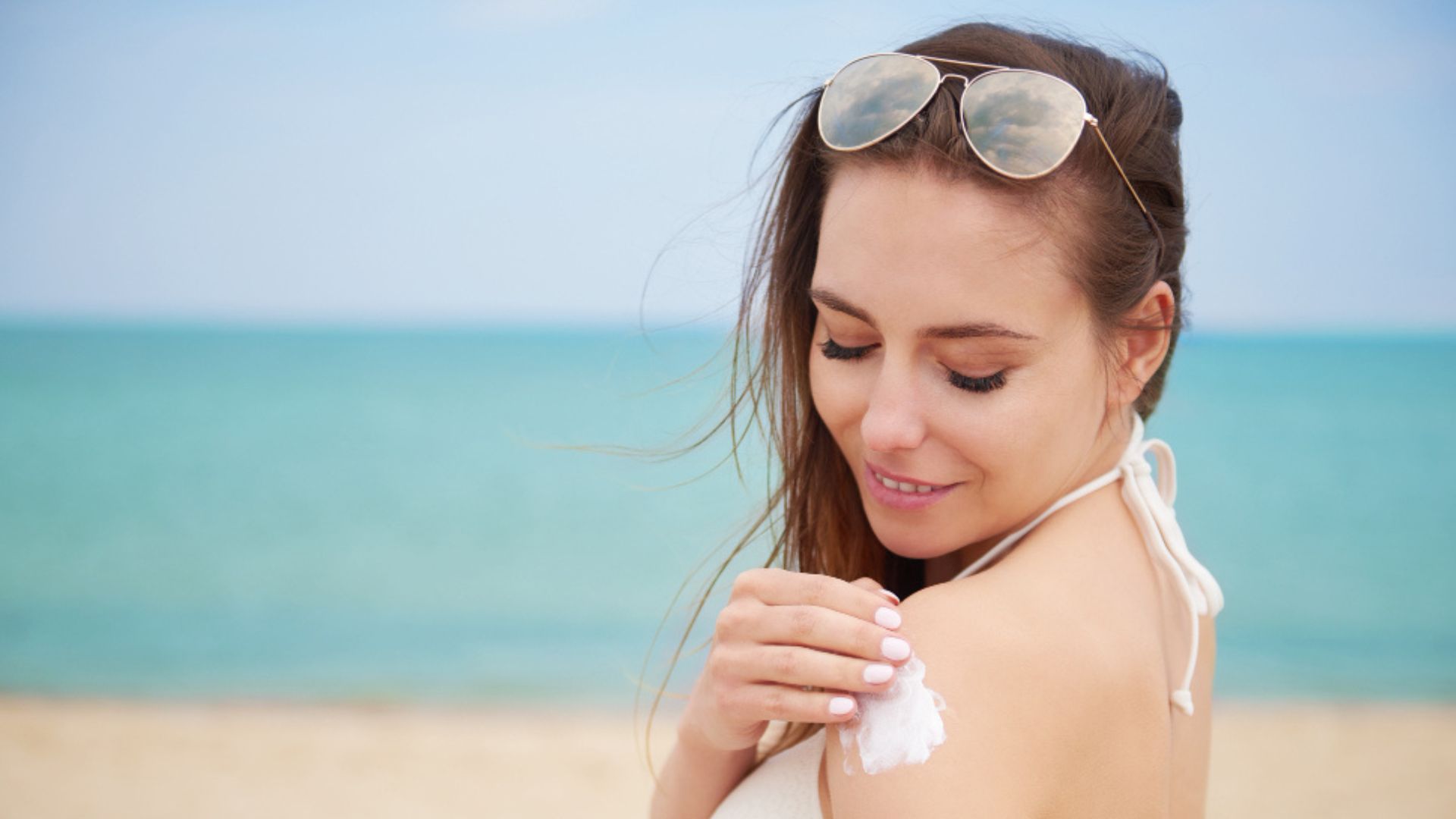

What is the best way to protect skin from the sun?
Protective clothing, sunscreen and seeking shade. What are the best ways to protect your skin from the sun? Let us learn if these are the most effective ways or if you need anything else.
It only takes a few minutes for the sun to damage your skin and harm its youthfulness and glow. Before you step out and enjoy the sunshine, you need to touch up and get ready. Let us help you with that.
1. Always Wear Sunscreen
Higher numbers of SPF indicate more protection. SPF 30 blocks 97% of UVB rays, while SPF 50 blocks 98% and SPF 100 blocks 99%. Your sunscreen is the best buddy for sunny days, beach days and even for cloudy days.
It should be worn daily to protect the skin from harmful ultraviolet (UV) radiation, which can cause sunburn, premature ageing, and increase the risk of skin cancer. Even on cloudy days, up to 80% of the sun’s UV rays can penetrate the clouds and damage the skin.
UVA rays penetrate deeper into the skin and contribute to the development of wrinkles, fine lines, and age spots, whereas UVB rays are the primary cause of sunburn, and sunscreen helps to reduce the risk of this painful and damaging condition.
2. Avoid Peak Sun Hours
Avoid peak sun hours as much as possible because these are the reasons why most people experience premature ageing, sunburns and skin damage. Peak sun hours, roughly between 10 a.m. and 4 p.m., should be avoided due to the intense ultraviolet (UV) radiation, which can cause sunburn, accelerate skin ageing, and increase the risk of skin cancer. Nearly half of the daily UV radiation is received during these hours, even on cloudy days.
The UV index is typically highest during midday, meaning the sun’s rays are strongest and most damaging. Wear a higher SPF sunscreen if stepping out and seek shade whenever possible. Overexposure to UV radiation is not only harmful but also risky to your skin and health. It is a major risk factor for skin cancer, including melanoma, the most serious form.
The sun is the most important source of vitamin D. We understand that. While some sun exposure is necessary for vitamin D production, it’s recommended to get it from shorter exposures earlier or later in the day, or to supplement. For activities during peak sun hours, it’s crucial to take precautions like using sunscreen, wearing protective clothing, and seeking shade.
3. Find Shade
Finding shade is crucial for protecting yourself from the sun’s harmful ultraviolet (UV) radiation and reducing the risk of heat-related illnesses. UV radiation is a major cause of skin cancer, and shade can significantly reduce your exposure to these rays. Shade helps lower temperatures, preventing overheating and reducing the risk of heat stroke. Visit “Skin Check Near Me” for regular skin checks.
4. Be Smart With Your Outfit
Even if you have to step out for an office meeting or an important gathering, be smart with what you wear. Choose an outfit that goes with your style and with sun protection. Dressing smart for sun exposure is crucial for protecting your skin from harmful UV rays, preventing sunburn, premature ageing, and reducing the risk of skin cancer. Wearing appropriate clothing can also help regulate body temperature and keep you comfortable in the heat.
5. Wear a Hat
A smart hat that goes wth your fashion needs and sun protection is a must-have. A wide-brimmed hat is suggested to wear at peak sun hours to protect yourself from harmful radiation. You must love your hair, but the sun doesn’t care. UV radiation can damage hair, making it dry and brittle, and can also damage the scalp. By shading the head, hats can help prevent overheating and potentially reduce the risk of heatstroke. Your head and neck are often exposed to the sun, so be smart while choosing a hat for yourself.
6. Sunglasses can help too.
Sunglasses protect your eyes from harmful ultraviolet (UV) radiation, which can cause various eye problems. They also shield your eyes from the sun’s brightness, reducing glare and eye strain, and can even help prevent headaches and migraines. Additionally, sunglasses protect your eyes from wind, dust, and other debris.
UV radiation from the sun can damage the cornea, lens, and retina, potentially leading to cataracts, macular degeneration, and other eye conditions. Sunglasses with UV protection block these harmful rays, minimising the risk of these problems.
You are now prepared with the best sun protection tips and tricks. These all collectively can protect your eyes, neck, head and overall skin from the harmful UV rays even on cloudy days.

